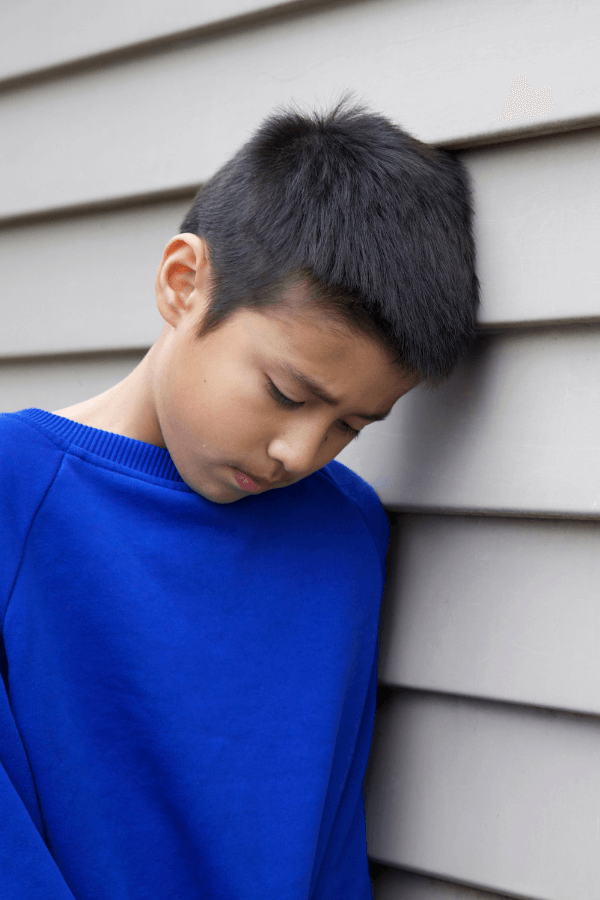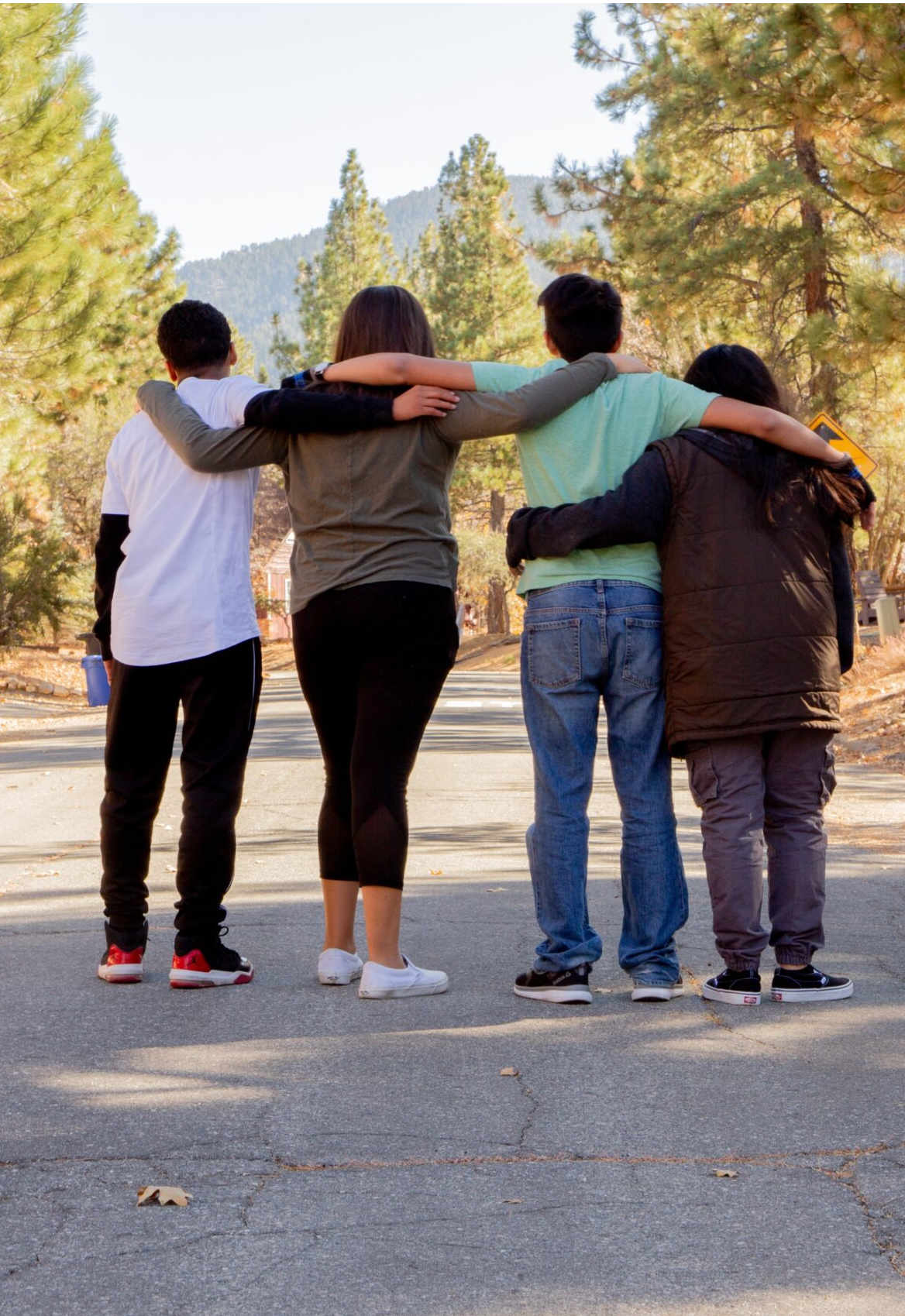Teen Bipolar Disorder Treatment Center in Dallas, Texas
Teen Bipolar Disorder Therapy and Treatment At BasePoint Academy
At BasePoint Academy, we recognize the unique struggles teens and adolescents with bipolar disorders face. Our academy, conveniently situated near Dallas, Texas, offers a secure, nurturing environment where teens can receive individualized care. With dedicated teen bipolar treatment centers in Arlington, Forney, Frisco and McKinney, we are easily accessible from surrounding areas. We are equipped to assist both boys and girls in navigating their individual challenges and journey towards recovery.
We specialize in providing evidence-based, holistic treatments for a range of bipolar disorders. Our in-person and virtual bipolar treatment services cater to young people dealing with various conditions, including Bipolar I disorder, Bipolar II disorder, Cyclothymic disorder, Rapid cycling bipolar disorder, Mixed features bipolar disorder, and Unspecified bipolar and related disorders. At BasePoint Academy, we firmly believe that every teenager deserves the opportunity to overcome bipolar disorder and lead a fulfilling life. Our empathetic and professional team is committed to guiding each teen through every step towards improved mental health. Whether it’s outpatient bipolar treatment near you or residential treatment for bipolar teens, our centers offer comprehensive services to meet your needs.
What Is Bipolar Disorder?
Bipolar disorder is a mental health condition in which your adolescent experiences extreme mood swings. The condition was once called manic depression or manic depressive illness. The shifts in mood make it challenging to function daily. The intense emotional states typically occur over days or weeks.
These are characterized as manic, indicating an abnormally elevated or irritable mood, or depressive, indicating a sad or low mood. People with bipolar disorder can also experience periods when their moods are neutral. Mood swings are common in everyone, but they typically last several hours rather than the days or weeks that can occur with bipolar disorder. There are several distinct categories of bipolar disorder.
Teen Bipolar Disorder Treatment Admissions and Intake
Our complimentary assessment with a licensed clinician will provide you with a recommendation for the appropriate level of care for your teen struggling with bipolar disorder. We can also check your insurance coverage levels.
Call us today to schedule a complimentary same-day bipolar disorder assessment at (972) 357-1749 or complete our inquiry form.
Find Out About Our Bipolar Treatment Admissions
Different Types of Bipolar Disorder
Several types of bipolar disorder include elevated and depressed moods in symptomatology. The symptoms of bipolar disorder cause unpredictable changes in mood and behavior, and this results in significant stress and difficulty in life.
Bipolar I Disorder
This disorder is defined by manic episodes that last at least seven days or symptoms that are so severe the teenager requires immediate care. With bipolar I disorder, your teenager will also experience depressive episodes that generally last at least two weeks.
Bipolar II Disorder
Teenagers who have bipolar II disorder experience at least one major depressive episode and at least one episode of hypomania but have not experienced a manic episode. Hypomania is less extreme than mania but includes feelings of euphoria, excess energy, or unusual irritability. Hypomania generally lasts for days rather than a week. People with bipolar II disorder frequently have other mental health conditions, such as anxiety.
Cyclothymic Disorder
This is a milder form of bipolar disorder in which people experience emotional ups and downs but with less severe symptoms. However, the symptoms must last over two years, and there must not be more than two months in which the symptoms stop.
Rapid Cycling Bipolar Disorder
Rapid cycling is a feature of bipolar disorder in which episodes of mania, hypomania, or depression appear unexpectedly and are primarily temporary but are more frequent. Rapid cycling can occur with any bipolar disorder as it is a description of a feature but not a standalone diagnosis.
Mixed Features Bipolar Disorder
This also is a description of an episode of bipolar disorder in which your teenager experiences symptoms of hypomania or mania and depression at the same time. In most forms of bipolar disorder, your teenager’s moods will alternate. However, when a person experiences mixed features symptoms, the features of high and low mood co-occur or in rapid succession.
Unspecified Bipolar and Related Disorders
Teens with this disorder experience mood elevations that are similar to other types of bipolar disorder, but the symptoms do not meet the criteria for other types of bipolar disorder. The symptoms impair a person’s ability to function but generally are not severe enough or last long enough to fit the criteria for a specific type of bipolar disorder.

Contact BasePoint Academy Today
Contact us today to schedule a free confidential assessment for your teen with a licensed clinician.
You can also get in touch to talk with our mental health experts about treatment needs, care options and your insurance coverage levels.
Call: (972) 357-1749Check Your Insurance
Signs and Symptoms of Bipolar Disorder in Teens
Experts are not sure what causes bipolar disorder in teenagers, but they do recognize that teen bipolar disorder runs in the family. Bipolar disorder typically begins in the teen and early adult years, when your teenager may experience symptoms that last for days or weeks at a time.
The signs of bipolar disorder in teens can be broken up into two categories. The first includes common signs and symptoms of hypomania or mania, and the second group includes signs and symptoms of depression. Dramatic episodes of elevated and low moods don’t follow a pattern in your teenager’s life. Episode severity differs from person to person and can change over time in the same person.
Bipolar disorder symptoms are filtered through adolescent development and teenage challenges that already trigger teenage stress and impact well-being. There is help for your adolescent with bipolar disorder. The symptoms of mania in this psychiatric illness include:
- Excessive happiness, excitement, or hopefulness
- Sudden mood changes from being happy to irritable
- Restless
- Rapid speech
- Poor focus and concentration
- High energy
- High sex drive
- Poor judgment
- Impulsivity
- Loss of appetite
- Distractibility
Symptoms of a low or depressed mood include:
- Sadness
- Poor energy
- Low sex drive
- Uncontrolled crying
- Feeling hopeless or worthless
- Speaking slowly
- Difficulty making decisions
- Alterations in sleep patterns
- Alterations in eating patterns
- Suicide attempt or suicidal ideation
What Makes Bipolar Disorder Treatment at BasePoint Academy Unique?
At BasePoint Academy, teen bipolar disorder treatment is designed specifically for adolescents and their families. We understand that bipolar disorder can look different in teens than in adults, often affecting mood, behavior, school performance, and family dynamics. Our programs are built on adolescent-focused clinical expertise to ensure developmentally appropriate, effective care.
What sets BasePoint Academy apart is our integrated, individualized approach. Each teen receives a comprehensive psychiatric and clinical assessment to guide a personalized treatment plan that may include therapy, medication management, and structured group support. We also emphasize family involvement, helping parents better understand bipolar disorder and how to support their teen’s stability and long-term mental health.
With multiple locations across the Dallas–Fort Worth area, BasePoint Academy provides accessible, compassionate care that supports teens in managing mood symptoms, building emotional regulation skills, and creating a stronger foundation for long-term wellness.
Types of Treatment Programs for Teen Bipolar Disorder
There are several types of treatment for teenagers with bipolar disorder to raise the level of successful healing and sustainable recovery. After a bipolar diagnosis, you may consider a highly structured outpatient program that allows your teenager treatment within the least restrictive environment while giving them the bipolar support and therapy required for this diagnosis.
Partial Hospitalization Program for Teen Bipolar Disorder
A partial hospitalization program for teenagers with bipolar disorder offers a comprehensive level of care on an outpatient basis. The partial hospitalization program at BasePoint Academy runs Monday through Friday, during which your teenager has access to individual, family, and group therapies, as well as educational guidance and skill support.
Intensive Outpatient Program for Teen Bipolar Disorder
The intensive outpatient program for teens with bipolar disorder also occurs in the least restrictive environment, which allows your teens to learn skills during the day and return home at night to practice them. Teenagers enrolled in an intensive outpatient program to treat bipolar disorder generally require more than once-a-week therapy.

Crisis Stabilization Services for Teen Bipolar Disorder Treatment
Bipolar symptoms can sometimes deteriorate into a mental health crisis that requires immediate psychological attention to keep your teen and those around them safe. The crisis stabilization program at BasePoint Academy can provide the necessary support and tools to de-escalate a situation. However, if needed, the mental health professionals at BasePoint Academy will recommend a short-term residential or inpatient program.
BasePoint Academy Accepts health Insurance
We accept most major health insurance providers in Texas and can check your treatment coverage levels on your behalf
OUR TEEN BIPOLAR TREATMENT CENTERS NEAR DALLAS, TEXAS
BasePoint Academy has several treatment facilities in the Dallas-Fort Worth area, including in Arlington, Forney, Frisco and McKinney, Texas. Each of these luxury facilities offers the same level of care from licensed mental health professionals whose focus is providing teenagers with the tools and resources they need to heal and support sustainable recovery from depression and other mental health conditions.
- Arlington, Texas: 3900 Arlington Highlands Blvd, Suite 237, Arlington, TX 76018
- Forney, Texas: 713 W Broad St, Suite 200, Forney, TX 75126
- Frisco, Texas: 8275 Judges Way, Suite 100I, Frisco, TX 75036
- McKinney, Texas: 4733 Medical Center Drive, McKinney, TX 75069

Types of Therapy and Counseling for Bipolar Disorder in Teens
Within the structured outpatient programs at BasePoint Academy, your teenager’s customized treatment plan may include a variety of bipolar therapies and bipolar medications to support treatment. These are just examples of the typical types of therapy offered, but it is not a full list.
Cognitive-Behavioral Therapy (CBT)
Cognitive-behavioral therapy is a type of short-term talk therapy or psychotherapy. Using an evidence-based, holistic approach, cognitive behavioral therapy has proven to be effective in a wide range of mental health challenges, including bipolar disorders. Cognitive behavioral therapy helps build your teenager’s self-confidence and helps them learn practical tools to manage negative thoughts.
Dialectical Behavior Therapy (DBT)
Dialectical behavioral therapy is one form of teen bipolar disorder treatment. It is a form of talk therapy that is successful in treating a variety of mental health conditions. During therapy, teens learn to blend the opposite ideas, live within the parameters of reality, and identify and learn healthier coping skills.Family-Focused Therapy
Bipolar disorder affects everyone in the family, so your team will be involved in family-focused therapy, during which the family can learn how to help a young adult with bipolar disorder. It is important for all family members to feel heard and to navigate the dynamics of healing. Families that are struggling with open communication, disruptive behaviors, and grief can find help with family-focused therapy offered at BasePoint Academy.Interpersonal and Social Rhythm Therapy (IPSRT)
This is an adjunctive therapy for people who have mood disorders. It emphasizes specific techniques that help your teenager manage stressful life events and improve their medication adherence to bipolar medication and mood stabilizers. The bi-directional, time-limited treatment was developed specifically for individuals with mood disorders.
Psychoeducation
Board-certified mental health professionals at BasePoint Academy use this process of providing education and information to help people gain a better understanding of mental health conditions. Using psychoeducation can reduce the rate of relapse and benefit the individual.
Parents and other family members and caregivers also benefit from the education as it helps them cope with bipolar diagnosis. It represents an early step in treatment during which family members learn how to offer support and maintain their emotional health.
Mindfulness-Based Therapies
Mindfulness-based therapies bring together clinical psychology and mindfulness practices in teenagers who are struggling with mental health challenges and who feel out of control or misunderstood. Mindfulness therapy helps your teenager take intentional steps toward healing. This evidence-based therapeutic intervention teaches teenagers to stay present and reduce emotional reactivity.Group Therapy
Teenagers benefit from teenage support groups in which the licensed therapist can integrate several interventional modalities based on the group dynamic and needs. Teenage peer support and skill building help reduce anxiety and depression, while teenagers form a supportive group environment in which they can discuss complex topics and learn life-changing strategies to improve their health and wellness.Does Insurance Cover Bipolar Disorder for Teens?
Yes, your health insurance will cover teen bipolar disorder treatment for adolescents who are beneficiaries of your health insurance policy. In 2010, the Affordable Care Act mandated that all health insurance policies offer essential health services, which include treatment for mental health conditions and substance use disorders.
While your insurance policy must offer rehab care for your teenager, the benefits and limitations of the policy are specific to your policy. Call BasePoint Academy at (972) 357-1749 to learn more about your benefits and limitations, estimate out-of-pocket costs, and determine if documentation is required before your teenager can be admitted into a teen bipolar disorder treatment program.
Which Health Insurance Providers Cover Bipolar Disorder Treatment for Teenagers?
All health insurance companies that wrote policies after 2010 must include treatment for mental health conditions and substance use disorders. However, parents who purchased insurance policies written before 2010 or who have worked for the same employer with the same insurance policy since before 2010 may not have rehab insurance on their policy.
Teenagers who need treatment for bipolar disorder can typically find help at BasePoint Academy, where most major insurance plans are accepted to treat adolescents with mental health conditions, substance use disorders, and addiction. Some large insurance providers that offer coverage within Texas include Aetna, Blue Cross Blue Shield, Magellan, UnitedHealthcare, Optum, and Cigna.
Does Health Insurance Cover Bipolar Testing and Evaluation?
Many insurance providers are recognizing the importance of mental health care and are extending coverage to include services like bipolar disorder testing and evaluation. Both federal and marketplace insurance plans are required to treat mental and behavioral health, and substance use disorder coverage equal to or better than medical coverage.
Despite this, it’s important to understand that while insurance may cover a portion of these expenses, out-of-pocket costs can still be a reality. High-deductible health plans may result in a decrease in non-psychiatrist mental health outpatient services. However, strategies to manage these costs exist, such as payment plans and exploring specific insurance coverage options. Always check with your insurance provider about the specifics of your plan’s coverage.

Contact BasePoint Academy Today
Contact us today to schedule a free confidential assessment for your teen with a licensed clinician.
You can also get in touch to talk with our mental health experts about treatment needs, care options and your insurance coverage levels.
Call: (972) 357-1749Check Your Insurance
Contact BasePoint Academy Today
Contact us today to schedule a free confidential assessment for your teen with a licensed clinician.
You can also get in touch to talk with our mental health experts about treatment needs, care options and your insurance coverage levels.
Call: (972) 357-1749Check Your InsuranceWhat Is the Teen Bipolar Disorder Treatment Program Admissions Process At BasePoint?
Whether your teenager attends a residential program or a highly structured outpatient program, there is an admission process. Each treatment center’s admission process is different but is designed to ensure that your teenager receives the best possible care while participating in the program. Here’s a general overview of what you might expect.
- Initial Contact: The admission process begins with your initial contact with the treatment center. During that phone call to BasePoint Academy, our admission specialist can schedule a complimentary evaluation and verify your insurance coverage.
- Assessment and Evaluation: If your teen boy or girl is a candidate for our mental health treatment, they will undergo a more thorough medical assessment and psychological evaluation, from which the board-certified mental health professional team will devise a customized treatment plan to address your adolescent’s needs.
- Admissions Coordination: Admission will be coordinated to accommodate financial obligations and the needs of your young adult and family. Your teenager will be advised what they can and cannot bring to BasePoint Academy. You and your teenager will go through orientation and program introduction in which you learn more about the facility and are introduced to the customized program developed for your team.
- Active Participation and Progress Monitoring: During treatment, your teenager is expected to participate actively in the therapy prescribed. Their progress is monitored throughout the program, and any adjustments will be made.
Bipolar Disorder Testing and Assessment for Teen Boys and Girls
Bipolar diagnosis includes a medical evaluation to rule out any underlying medical conditions and an assessment with a licensed mental health professional. While there are short online assessments, evaluations by licensed counselors are far more accurate. BasePoint Academy offers a complimentary assessment for teen bipolar disorder, which gives you the information you need to decide about treatment.
Adolescent development is significantly different from that of adults. Teens require treatment from adolescent-focused mental health professionals who are adept at youth counseling and understand adolescent therapy and teenage stress. At BasePoint Academy, part of your teenager’s treatment program is building teenage resilience to help reduce the risk of relapse and support sustainable recovery.
How Much Does Bipolar Disorder Treatment for Teens Cost in Dallas, Texas?
The cost of bipolar therapy and management varies depending on several factors. The first factor is the charge from the facility, which is based on the intensity of intervention required, including medication management and therapeutic interventions. While all health insurance policies written after 2010 must cover mental health conditions, not all coverage is the same.
Your out-of-pocket treatment costs will depend on your insurance policy deductible and copay. Some insurance policies limit the number of sessions a beneficiary may have per incident, per year, or during a lifetime. Call BasePoint Academy at (972) 357-1749 to understand your benefits and limitations, or contact us online. The admission specialist can check your insurance coverage level and estimate out-of-pocket costs.
How Much Does Bipolar Disorder Bipolar Testing Cost Without Insurance?
When it comes to understanding the cost of bipolar disorder testing for teenagers, youths, and young adults without insurance, there are several factors to consider. The financial burden can be quite substantial, with mental health care costs ranging from about $4,500 to more than $21,000 per year. The initial evaluation with a psychiatrist, which is a critical component of bipolar disorder testing, can cost anywhere from $250 to $500. Follow-up sessions, which usually last between 30 to 60 minutes, can run from $100 to $200 each.
While these figures may appear daunting, it’s important to remember that affordable options do exist. For example, some online psychiatry platforms offer an initial evaluation for as low as $175, with follow-up visits costing around $75. Additionally, there are programs and resources available for those without health insurance that can assist in finding mental health professionals. Also, certain online therapy platforms provide services for teens starting at just $69 per week. It’s crucial for teenagers, youths, and young adults, along with their parents, to explore all available options and seek professional guidance to navigate the financial challenges of bipolar disorder care.
How Much is Bipolar Medication Without Insurance?
Prices for popular bipolar disorder medications such as Lamictal (lamotrigine), Seroquel (quetiapine), Abilify (aripiprazole), and Zyprexa (olanzapine) can range from $8 to $14 per prescription. However, some medications like Latuda can cost significantly more, with prices reaching up to $60 per tablet or $1776 per month without insurance.
While these costs may seem daunting, remember that help is available. There are resources and programs designed specifically to assist those without health insurance in finding mental health professionals and affordable medications. Some pharmaceutical companies also offer assistance programs – for example, eligible patients may be able to obtain their first two fills of CAPLYTA® (lumateperone) at no cost. It’s important for parents and young individuals alike to explore all available options and seek professional guidance to navigate the financial challenges of managing bipolar disorder.
BasePoint Academy: Your Partner for Adolescent Bipolar Treatment in Dallas, TX
Understanding the challenges that come with managing bipolar disorder, particularly for adolescents, is important. As a leading center in Texas, BasePoint Academy offers comprehensive bipolar disorder treatment services in Dallas and surrounding areas, including Arlington, Forney, and McKinney. These facilities are equipped with exceptional resources to provide therapy and counseling specifically tailored for teenagers dealing with mood disorders.
We understand that each teenager’s experience with bipolar disorder is unique, which is why we offer both PHP and outpatient treatment programs. Our team of professionals focuses on individualized, evidence-based care, ensuring that each teen receives the support they need. Whether you’re seeking cyclothymia counseling in Dallas or a full-service bipolar disorder treatment center for teens in the Dallas/Fort Worth area, BasePoint Academy is here to help.
Statistics on Bipolar Disorder in Teen Boys and Girls in Texas
- Adolescents with bipolar disorder experience fast mood swings. Children are more likely to have destructive tantrums than be elated during the manic phase.
- Adolescents with bipolar disorder are prone to substance use disorder as they may self-medicate during depressive episodes with drugs or alcohol.
- Data from the National Institute of Mental Health finds 1.9% of 13 to 14-year-olds, 3.1% of 15 to 16-year-olds, 4.3% of 17 to 18-year-olds and 4.7% of young adults aged 18 to 29 were diagnosed with bipolar disorder.
- An estimated 82.9% of those with bipolar disorder had serious impairment.
- A population-based intervention successfully encouraged the appropriate use of bipolar management therapy drugs and provided prescribers with educational tools to better communicate with their patients’ issues regarding appropriate treatment.
- Educational materials to physicians resulted in an economic impact on Texas Medicaid’s pharmacy program expenditures, with a calculated twelve-month overall savings of $1,385,350.20 and savings to the state of $554,278.62 and a 31.9% decrease in clinical indicators.
- Adults with bipolar disorder were more likely to have heart disease, kidney disease, and asthma.
- Bipolar disorder is found equally in men and women and because of the irregular pattern of symptoms, some people go years without a proper diagnosis.
Effectively Treat Teen Bipolar Disorder With BasePoint Academy
With expert care and a safe environment, we can help your teen and your family address and overcome bipolar disorder. Call today to discover the treatment for long-term healing.






